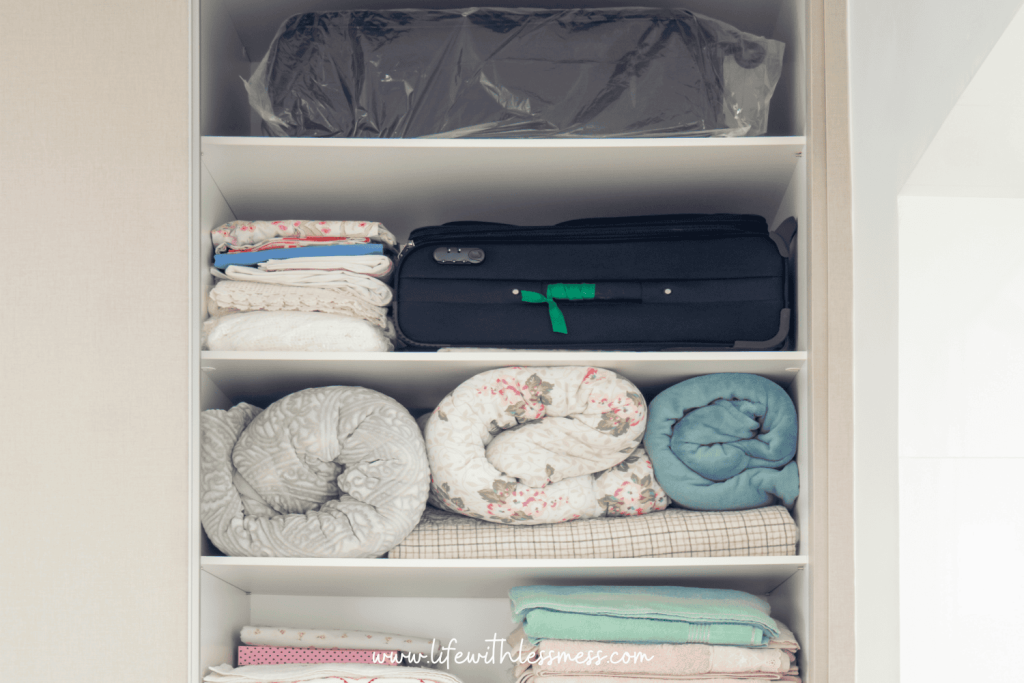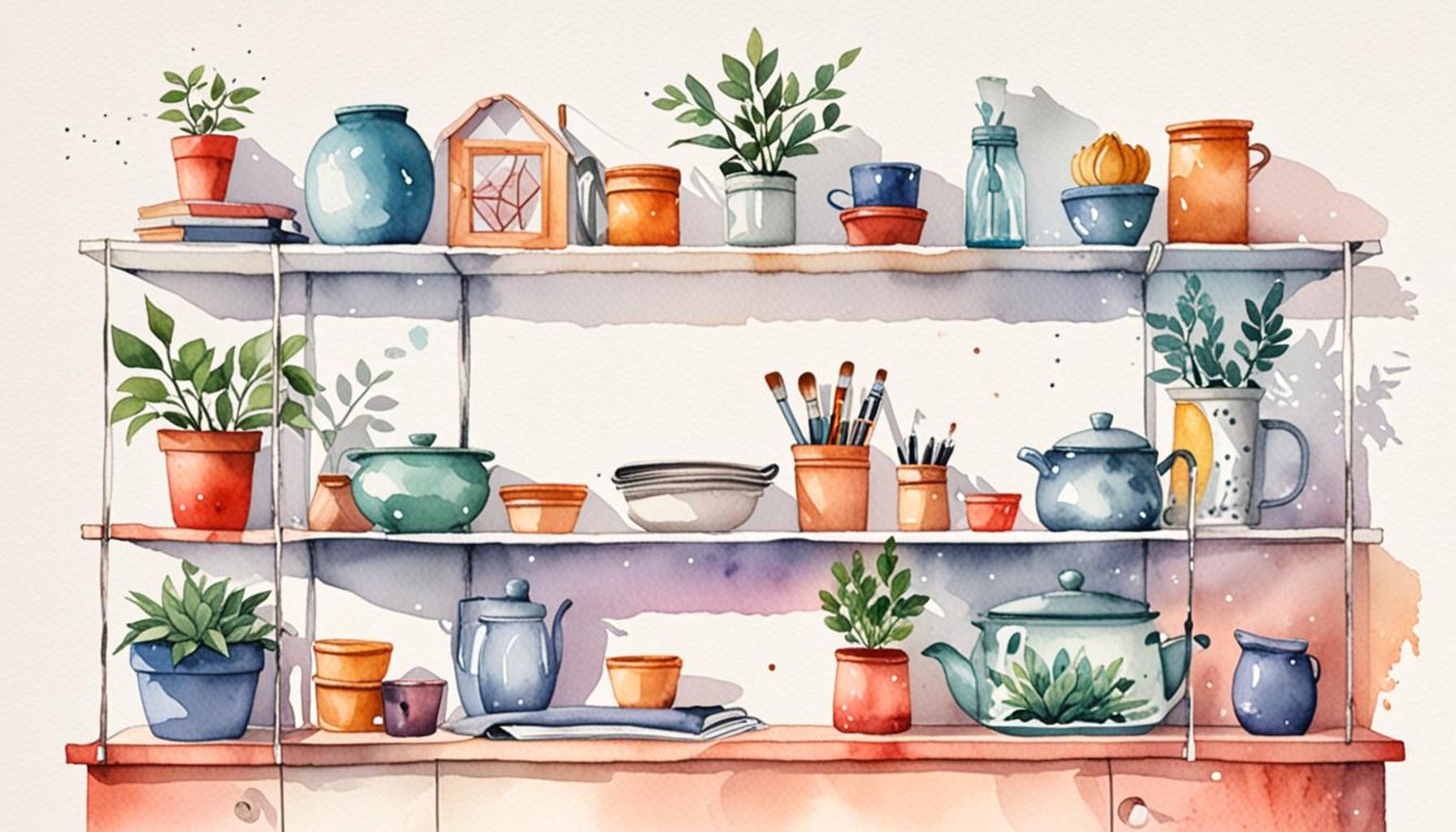The Impact of Reducing Clutter on Family Life: Creating a Harmonious and Functional Environment for Everyone

Creating Harmony Through Organization
In the hustle and bustle of modern life, many families are increasingly confronted with an ever-expanding mountain of clutter. The physical chaos that accumulates not only occupies valuable space but can also lead to heightened stress levels, anxiety, and discord within the household. By understanding the impact of reducing clutter, families can reclaim their space, nurturing a more peaceful and efficient environment conducive to well-being.
Decluttering offers numerous advantages that can transform the family’s daily life:
- Improved Mental Health: Numerous studies suggest that a serene and organized environment can lead to a marked decrease in anxiety and promote a tranquil mindset. For example, the simple act of organizing a child’s study area can create a space that encourages focus, allowing for a more productive homework routine.
- Enhanced Productivity: In a decluttered home, distractions are minimized. Families juggling both work and children’s educational needs can significantly benefit from an organized setting, which aids in improving efficiency in tasks ranging from job assignments to managing household chores.
- Stronger Family Bonds: Decluttering can be a family affair. Engaging children and partners in the process fosters teamwork and communication. This collaborative effort can turn mundane chores into shared experiences, strengthening familial ties through teamwork and mutual understanding.
In Nigeria, many families often face unique organizational challenges that arise from the multi-functional nature of their living spaces. Homes serve not only as residences but also as workplaces, marketplaces, and communal hubs for family gatherings. The need for organization in such environments becomes paramount. Parents juggling jobs and children’s needs can find solace in creating a structured space that enhances clarity and maximizes utility.
As families embark on the journey of decluttering, they stand to gain not just an aesthetically pleasing backdrop but also emotional rewards. The act of reducing clutter transcends mere tidying; it’s about cultivating emotional connections, reducing tension, and enhancing interactions among family members. Imagine a living room free of excess furniture, where children can play freely, or a kitchen countertop that provides a clean surface for family meals and activities, inviting togetherness and shared experiences.
Furthermore, adhering to a decluttering routine may also yield financial benefits. Selling or donating unneeded items can create space while generating additional income. Communities across Nigeria have seen local trade fairs popping up, allowing families to exchange goods, fostering a culture of sharing and communal support.

Ultimately, as families view decluttering not only as a necessity but as a pathway to a more enriching lifestyle, they unlock the doors to a space that nurtures mental well-being, fosters productivity, and encourages stronger family connections.
RECOMMENDED: Check out this similar article
The Transformative Power of Clutter Reduction
Reducing clutter can be a game-changer in family life, offering more than just visual appeal. A clutter-free space can lead to a multitude of positive outcomes that ripple through daily interactions and overall family dynamics. These benefits often extend beyond the walls of the home, affecting relationships, productivity, and even emotional well-being.
To appreciate the profound impact of decluttering, consider the following facets:
- Physical Space and Mobility: A decluttered home allows for improved movement and space organization. In many Nigerian households, where living areas often double as play zones, workspaces, and gathering spots, an organized environment makes it easier for everyone to engage in daily activities without feeling cramped or overwhelmed.
- Creating Zones for Activities: By systematically organizing spaces within the home, families can designate specific areas for different activities. For example, a well-defined study corner can inspire children to complete their homework, while a clear and welcoming living area encourages family interactions. Families in bustling cities like Lagos can illustrate how efficient spaces can change the atmosphere when entertaining guests or enjoying dates—more space equals more joy.
- Decision Fatigue Reduction: Clutter contributes to decision fatigue. When surrounded by numerous items, simple choices become arduous tasks. By reducing clutter, families can not only streamline their decision-making regarding daily routines, such as meal preparation or chore assignments but also find joy in simplicity. This clarity can provide peace of mind in times of stress, especially for busy parents balancing work and family obligations.
Additionally, the cultural aspect of decluttering in Nigeria cannot be overlooked. In many traditions, hospitality is paramount, and a well-maintained home reflects not only personal values but also community respect. By creating an environment where visitors feel comfortable, families inadvertently strengthen social bonds and enhance their local interactions.
The process of decluttering naturally invites conversations around material possessions and what they signify in our lives. This practice may lead families to evaluate their priorities: how many toys does a child truly need, or how often are certain kitchen gadgets used? Engaging in these discussions fosters a sense of mindfulness, promoting intentional living and deeper understanding among family members.
As families embrace the practice of decluttering together, they develop not only a cleaner environment but also a richer connection to each other. The insights gained through discussions about belongings can lead to increased empathy and a shared vision for a more harmonious lifestyle. This collective journey towards simplicity can transform the household dynamic from one of chaos to one of collaboration.
As Nigerians continue to face the challenge of urbanization and its associated pressures, reducing clutter stands as an achievable solution. By prioritizing decluttering, families can unlock the potential for a functional and harmonious environment that benefits everyone’s mental and emotional health.
| Advantages | Impacts on Family Life |
|---|---|
| Improved Focus | A clutter-free environment fosters increased concentration among family members as distractions diminish, enabling healthier interactions. |
| Enhanced Communication | With less visual noise, families can engage in more productive discussions, strengthening their bonds and fostering teamwork. |
| Reduced Stress Levels | Clutter contributes to anxiety; therefore, simplifying one’s surroundings can lead to a calmer atmosphere for the entire family. |
| Encouragement of Responsibility | Involving children in decluttering can teach valuable life skills about organization and personal accountability. |
The myriad advantages of reducing clutter extend beyond aesthetics, significantly influencing the overall dynamics within a family. A simplified atmosphere leads to enhanced communication and harmony in relationships. When families are surrounded by less visual chaos, they can engage in meaningful dialogues that strengthen their bonds. Moreover, studies have shown that overly cluttered environments can trigger anxiety and distraction, leading to elevated stress levels. Creating a serene and organized setting not only fosters a sense of peace but also promotes mental well-being for all family members.Involving children in the decluttering process encourages them to develop essential skills such as organization and responsibility. As families embark on this journey, they unveil the possibility of a nurturing and functional environment that benefits each individual. The act of decluttering becomes a shared experience, paving the way for family members to collaborate and grow together. Explore how small changes can yield profound effects and revolutionize your home dynamics, pushing your family to thrive in a harmonious abode.
YOU MAY ALSO LIKE: Read read another article
Enhancing Emotional Strength through Decluttering
The benefits of reducing clutter extend deeply into the emotional landscape of family life. As families engage in decluttering, they often experience a substantial boost in both mental clarity and emotional resilience. Clutter can act as a physical representation of neglected responsibilities or unresolved issues, leading to feelings of anxiety and unrest. When families tackle these challenges together, they create not only a more organized space but also an emotionally supportive atmosphere.
Linking Environment to Mental Health: Numerous studies have shown that our physical surroundings significantly influence our mental state. In a Nigerian context, consider the vibrant cultures and traditions that thrive on community and family gatherings. A clear and spacious home fosters a welcoming environment, allowing for celebrations and discussions that nurture relationships. The ability to host friends and family comfortably can lessen feelings of isolation, a common issue in urban settings where many feel disconnected despite being surrounded by others.
Promoting Family Collaboration: Decluttering often requires teamwork. When family members join hands to sort through belongings, they learn the importance of collaboration and communication. Children, for instance, can be encouraged to share their perspectives on which toys or clothes hold value and why. This practice not only teaches them critical decision-making skills but also opens avenues for parents to impart valuable life lessons regarding attachment and materialism. In cities like Port Harcourt, where family cohesiveness is vital due to the fast-paced urban life, participating in decluttering can be an excellent outlet for reinforcing bonds.
- Ritualize the Process: By establishing a regular decluttering schedule, families cultivate an ongoing practice of mindfulness. Designating days for tidying up and organizing can become cherished traditions. Families might choose their decluttering days based on significant dates or events, integrating culture and family heritage into the process. This structured approach not only streamlines organization but also makes decluttering enjoyable.
- The Role of Minimalism: Embracing a minimalist mindset can substantially transform a family’s perspective on possessions. Instead of viewing items as just material objects, families learn to appreciate the experiences and memories associated with them. This can help instill a newfound respect for items, prompting families to invest in quality over quantity, a notion that resonates well in today’s fast-paced consumer economy.
Encouraging Healthy Habits: Decluttering can facilitate healthier lifestyles. Families often discover old food or forgotten exercise equipment during the process, prompting a reevaluation of their health choices. When space is clear and functional, families are more likely to engage in activities such as cooking nutritious meals together or setting up exercise stations at home. Amidst Nigeria’s increasing health challenges, such practices foster healthier living while reinforcing family togetherness.
Moreover, a decluttered environment can minimize distractions, allowing for more quality time spent on meaningful interactions. Families can establish tech-free zones where the focus shifts from screens to conversations, board games, or reading together. In an era dominated by digital distraction, this proactive approach to creating family time becomes essential.
Ultimately, reducing clutter can serve as a catalyst for emotional growth. As families let go of physical and emotional baggage, they unlock pathways to live intentionally, fostering a home environment where everyone feels energized, understood, and at peace. Through the practice of decluttering, families in Nigeria can cultivate a supportive ecosystem that not only embraces simplicity but also cherishes the relational richness that such an environment promotes.
ADDITIONAL INSIGHTS: Expand your understanding here
Conclusion: Embracing Freedom Through Clarity
In exploring the impact of reducing clutter on family life, it becomes evident that a decluttered environment is not merely about aesthetics; it is a powerful tool for fostering harmony and functionality. By engaging in the process of decluttering, families in Nigeria can significantly enhance their emotional resilience, streamline communication, and create spaces that encourage quality interactions. The journey towards a clutter-free home promotes important values such as collaboration and mindfulness, transforming mundane tasks into opportunities for bonding and teaching critical life skills to children.
A simplified living space not only minimizes distractions but also allows families to reclaim lost time and better prioritize their health and well-being. As seen in various cultural practices across Nigeria, the emphasis on togetherness and community can be beautifully mirrored in family dynamics when shared spaces are kept orderly and functional. This intentional habit of organizing fosters relationships, enabling families to engage more fully in celebrations and meaningful conversations.
As we encourage families to rethink their attachment to material possessions and embrace minimalism, it is essential to recognize that the benefits of decluttering reach far beyond physical space. They pave the way for a deeper emotional connection, yielding a harmonious household where every member can thrive. By taking proactive steps to reduce clutter, families are not only enhancing their immediate living environment but are also cultivating a legacy of order, resilience, and warmth that will resonate through generations.


